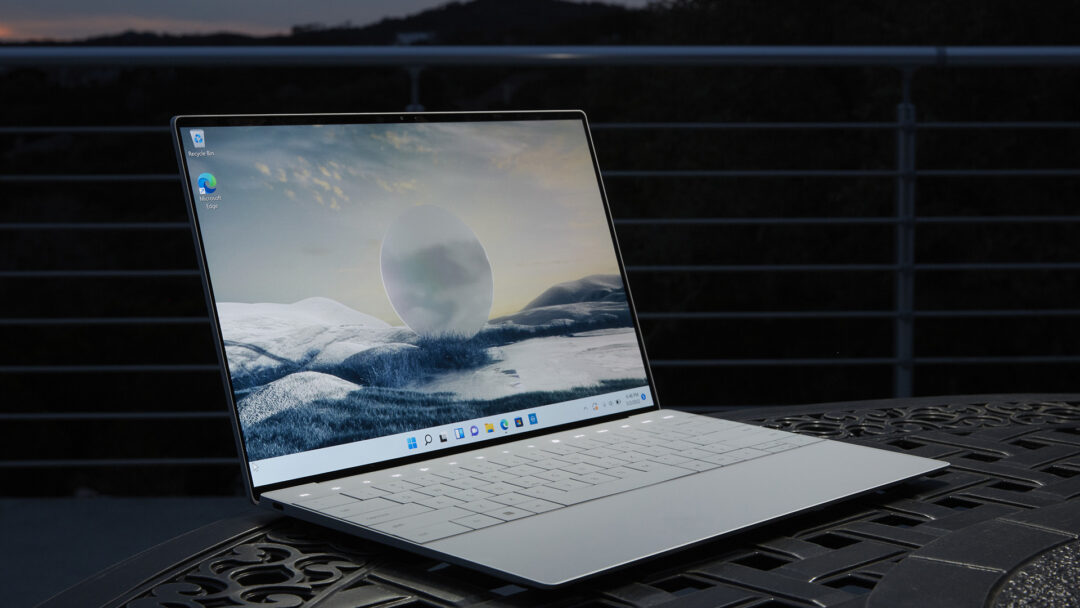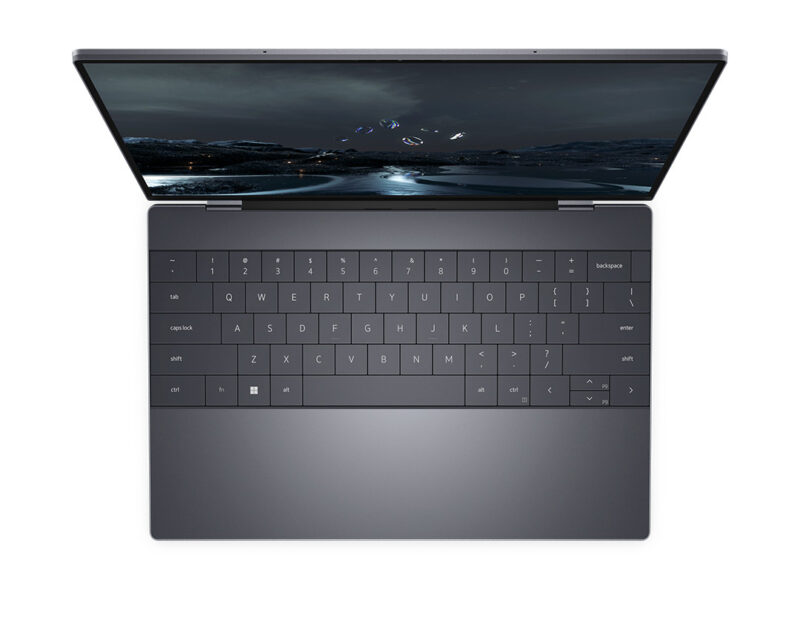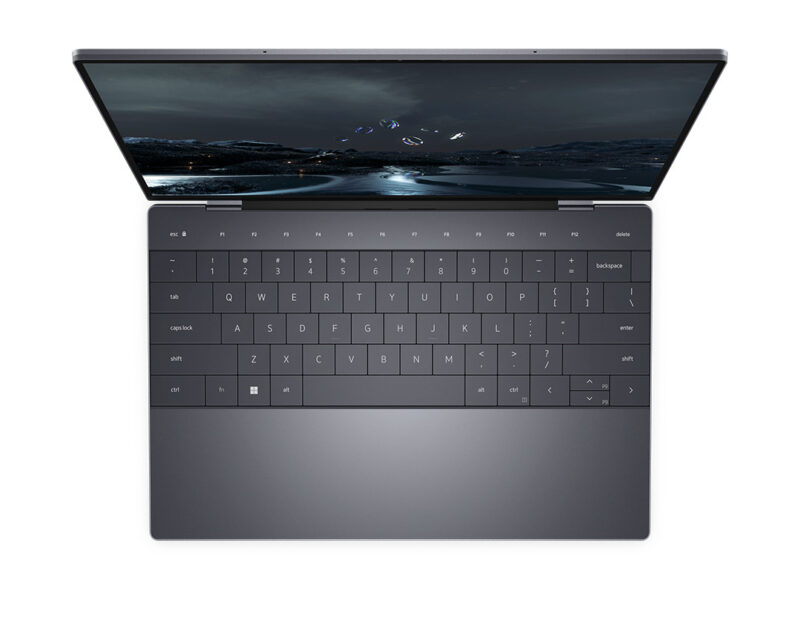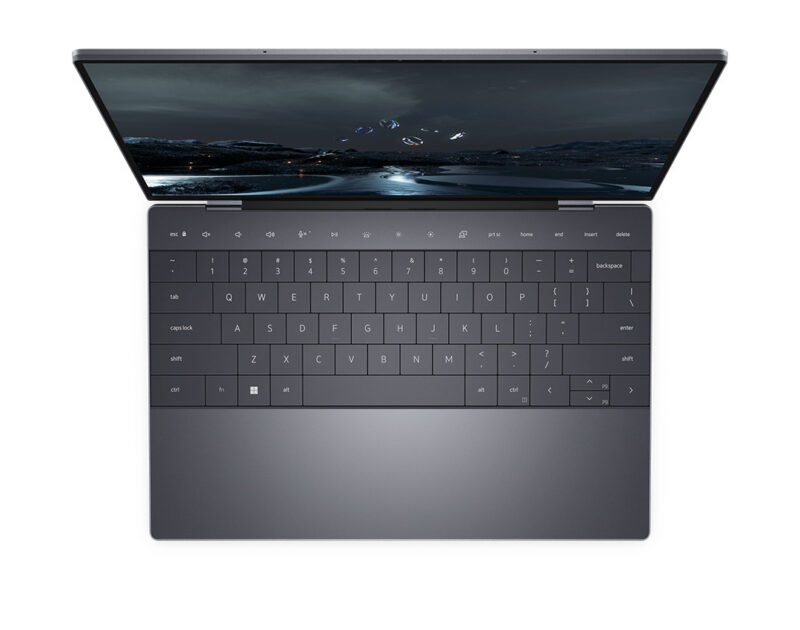The slim and light ultrabook computer is the travelling digital nomad’s answer to the samurai sword: razor-sharp, elegant and deadly efficient.
The Dell XPS 13 Plus 9320 is the ultrabook of ultrabooks. I’ve been writing about technology, including computers, for over 30 years. I’ve also seen several generations of 13-inch Dell XPS computers. The oldest of them is from 2007, and 15 years after I bought it, it’s still stylish. And I turn it on from time to time. But I’ve never seen a laptop as sharply designed as the new XPS 13 Plus! The case is so wedge-shaped and thin that it makes a MacBook Air look clunky. The sharp 4K display is largely edge-to-edge – but framed by a slim aluminium frame. So is the keyboard, which goes right to the edge of the enclosure. The sleek impression is reinforced by the touchpad – which can’t be seen.
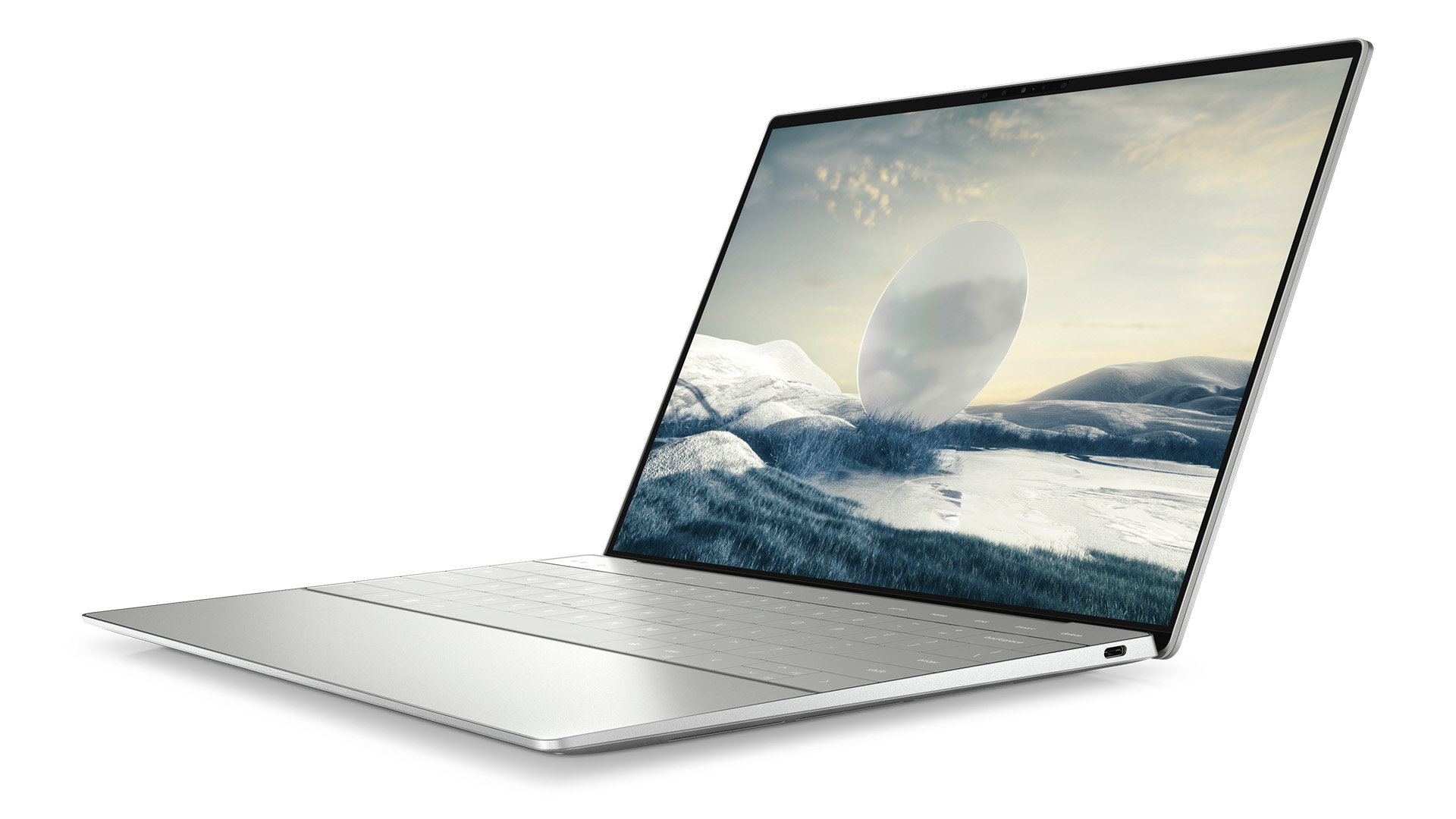
Where’s the trackpad?
The computer has a trackpad, of course. It’s just invisible. The same goes for the top row of function keys, which are touch panels that light up when the PC is on. However, the touchpad remains invisible at all times. It looks exceptionally smart and exclusive! In use, however, it’s not nearly as smart, as you’re literally fumbling blindly while trying to hit the touchpad, which is no bigger than on other laptops. Right-clicking becomes particularly difficult as, unlike left-clicking, it can only be done in the bottom right corner of the touchpad, the extent of which you can’t see!
More smart than practical
Accuracy does improve over time as your fingers get used to finding the magic spot. But Dell has managed to make a simple operation much harder than it needs to be. Which is opposite of the idea of great design, is it not?
The sleek impression is reinforced by the touchpad – which isn’t there at all.
Unfortunately, the same applies to the ports on the Dell XPS 13 Plus. Which are barely numerous enough to be mentioned in the plural. Two USB-C ports are the only connections to be found on the ultra-slim enclosure. In fairness, it would have been nearly impossible to find room for any other ports. An included adapter for USB-A, HDMI and DisplayPort would have gone a long way. You do get a USB-C to USB-A adapter and a headphone adapter, though.
Perfect display
The display, on the other hand, is nothing to complain about: a bright and colorful UHD display in 16:10 format. As mentioned, it takes up almost the entire frame. And the touch function is the icing on the cake. It doesn’t get much better than that. And no laptop from Cupertino has a screen that’s even half as good. Apple fans are welcome to refute my claim by pointing to 13-inch Mac laptops with 4K resolution and touchscreens. Or at least with just one of the two.
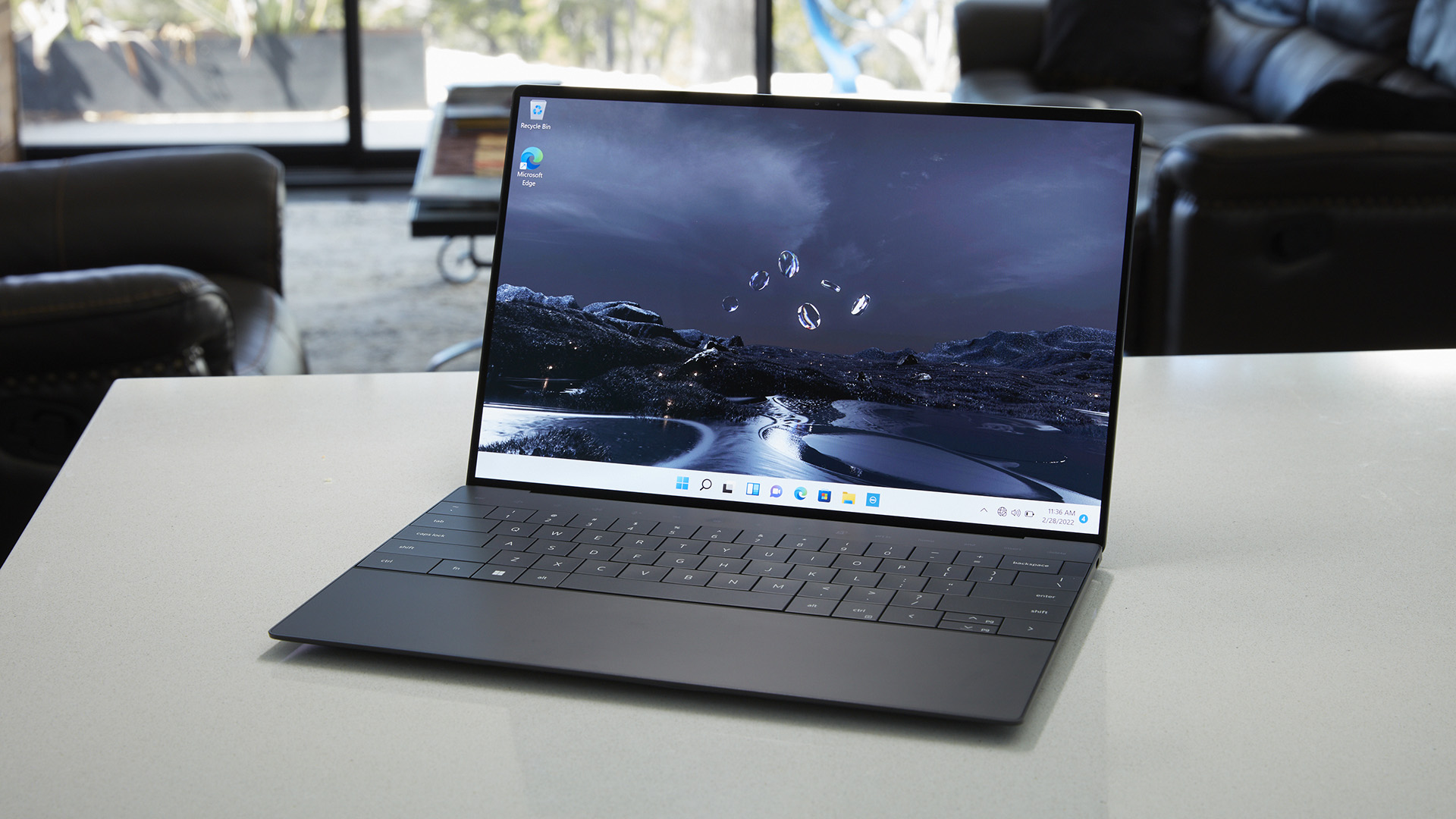
Powerful components in a small frame
The Dell XPX 13 Plus is among the slimmest laptops you’ll find. The computer is just 1.6 centimetres thick. And since the solid aluminium lid measures just under half a centimetre in thickness, there’s just over a centimetre for the electronics themselves. It’s impressive what Dell’s engineers have managed to cram into the ultra-slim enclosure.
The processor is a 12th generation Intel Core i7. There’s 32GB of DDR5 memory and a 1TB SSD. The graphics card is – of course – an Intel Iris Xe, which is integrated into the processor. A perfectly acceptable solution for an ultrabook computer.
Benchmarks
The processor is an Intel Core i7-1260P with a speed of 2.1 GHz and up to 4.7 Ghz in turbo mode. It has 12 cores, but ‘only’ 16 threads, as modern processors don’t just have cores, but are split into ‘performance cores’ and ‘efficient cores’, which doesn’t automatically lead to twice as many threads as there are cores. However, this is a technicality, as the processor is fast anyway.
The GeekBench 5 processor test ends with a result of 7,032 in multicore and 1,426 in singlecore respectively. That’s definitely respectable for a processor designed for ultrabooks, where heat dissipation should be as low as possible. It’s a bit slower than the 2022 edition of the Apple MacBook Air with M2 processor. But only slightly. As is also the case with the Cinebench R23 test, which ends up with 1,608 in single-core and 6,702 in multi-core. The PCMark 10 office application simulation ends with a result of 4,935. That’s an impressive score for such a light laptop. And you have to go up to much heavier computers, like the Acer Predator Helios 300, to see significantly higher processor performance. And that comes at a cost in terms of weight.

True to tradition, we’ve also tried running 3D graphics tests on the Dell XPS 13 Plus. And as always, they show that this is not what ultrabooks are built for. Compared to other computers with Intel Iris Xe graphics, however, the Dell holds up fairly well.
For an ultrabook, the battery test result was a little disappointing. The Dell XPS 13 Plus only managed a good two and a half hours of intense office simulation at full brightness before the battery was drained. However, that should be enough for a normal working day. And if the worst comes to the worst, most newer USB-C chargers will do the job.
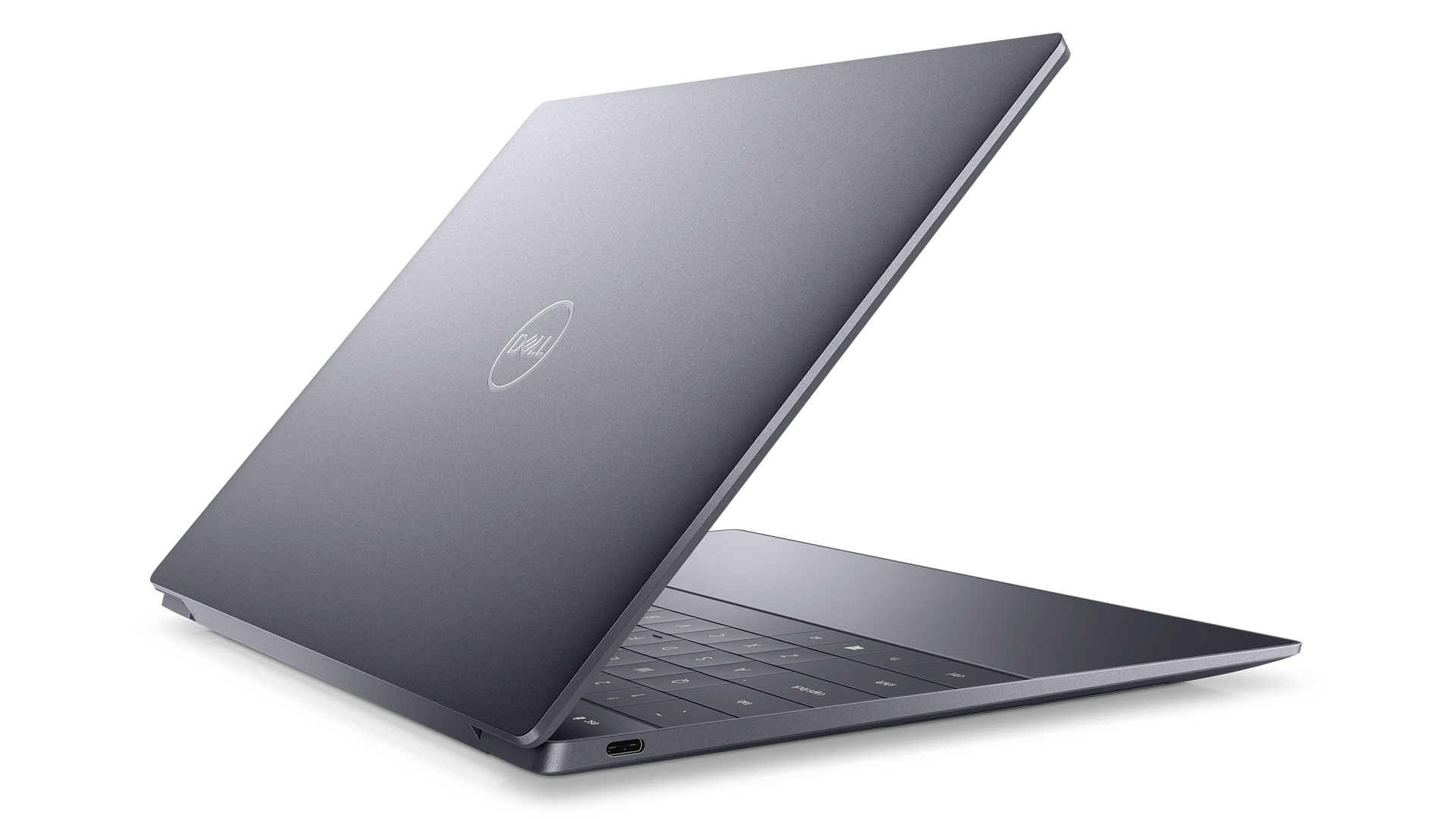
Verdict
The Dell XPS 13 Plus is an extreme computer. It’s slimmer and lighter than most, and design-wise, it’s quite spectacular. It’s also just as fast as bigger and heavier laptops, and the 4K touchscreen is nice and sharp. When generous amounts of SSD and DDR5 RAM are added, a hefty price point is inevitable. If you can afford it (or if your company pays for it – which they’ll later deduce from your taxes), you’ll get a computer that’s bound to get some attention at the conference table. The invisible trackpad is a wild idea that, in my view, makes operation unnecessarily cumbersome. At least until you get used to hitting the right spot with your finger.
The comparison with the Apple MacBook Air is unavoidable. The performance is on a par with it. And if you scale back the RAM, storage and screen resolution requirements, you can easily find a Dell XPS 13 Plus that matches the MacBook on both price and specifications. But it’s in this super edition that it’s most interesting.
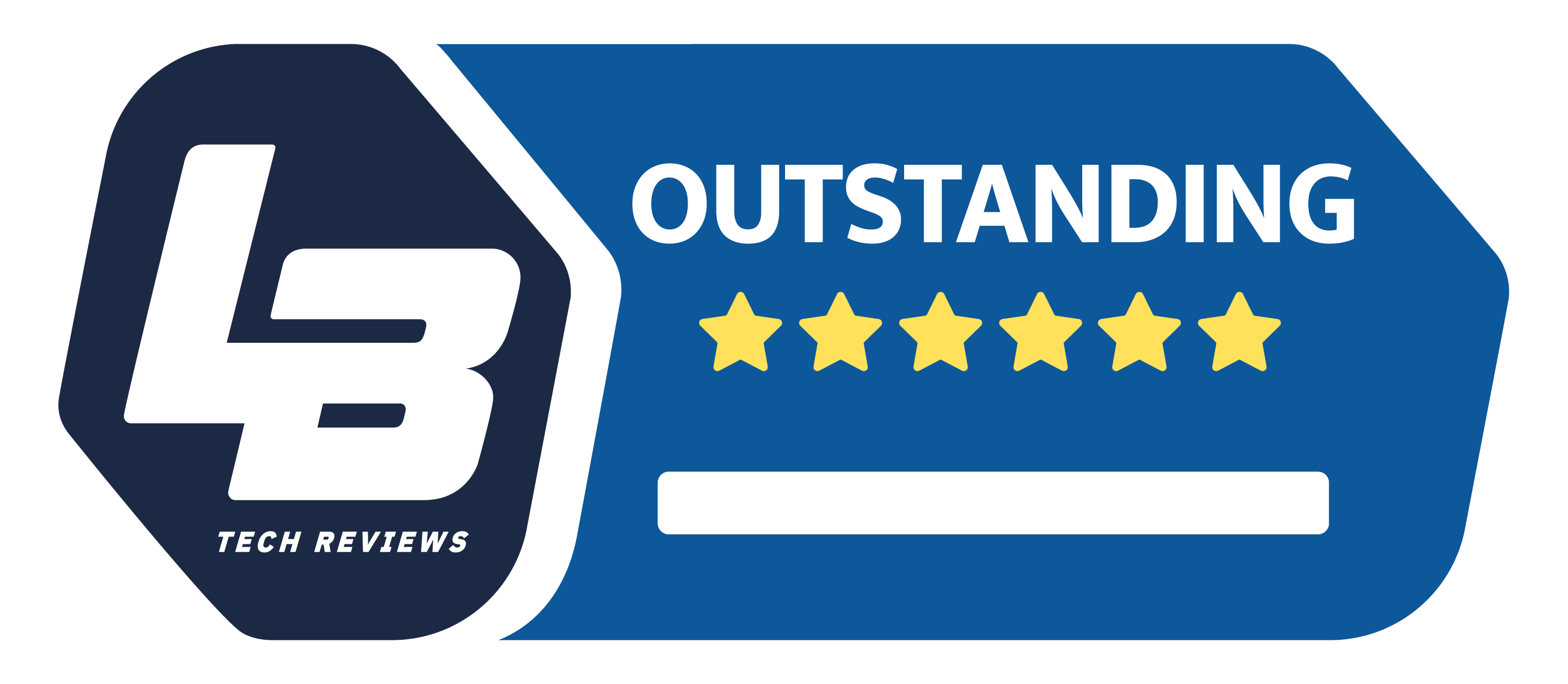
1349 €
Specifications
- Processor: 2,1 GHz (4,7 GHz turbo) Intel Core i7-1260P 12 cores (16 threads)
- Display: 13,4″ UHD+ (3840 x 2400 pixels), 60 Hz touch 500 NIT
- Memory: 32 GB DDR5
- Storage: 1 TB SSD
- Graphics: Intel Iris Xe Graphics
- Operating system: Windows 11 Pro, 64 bit
- Connectivity: Wi-Fi 6E, Bluetooth 5.2, 2 x USB-C (M. Thunderbolt 4, DisplayPort 2.0), HD-webcam
- Dimensions and weight: 29,5 x 1,6 x 19,9 cm / 1,3 kg
- Web: dell.com
